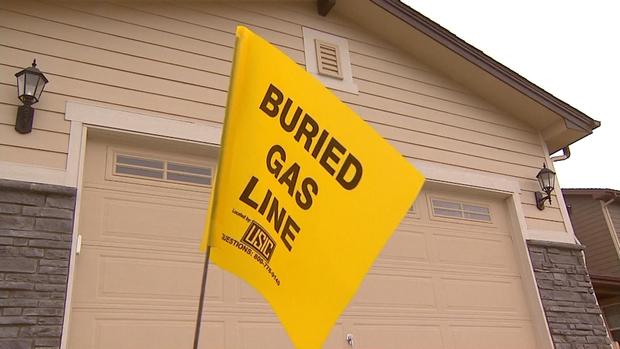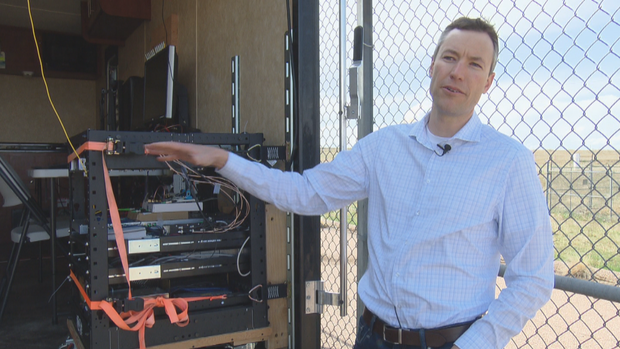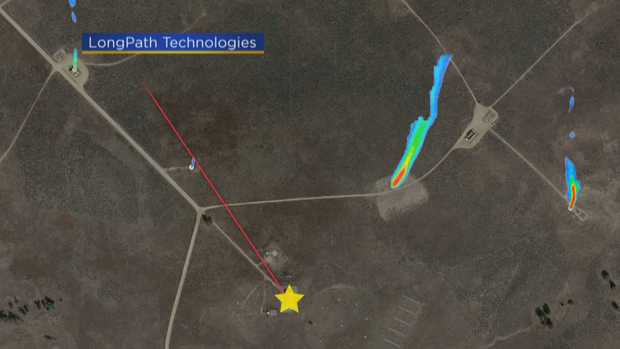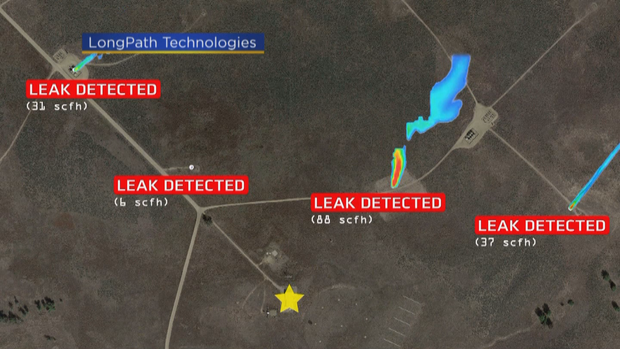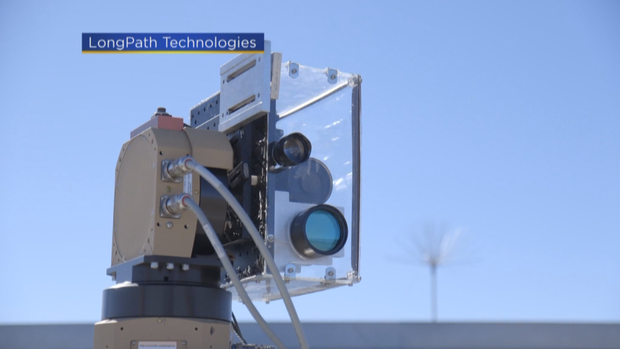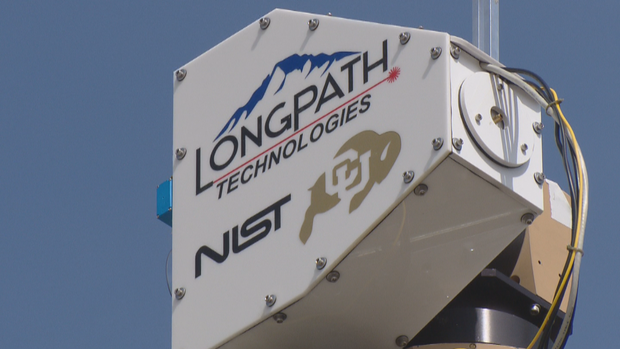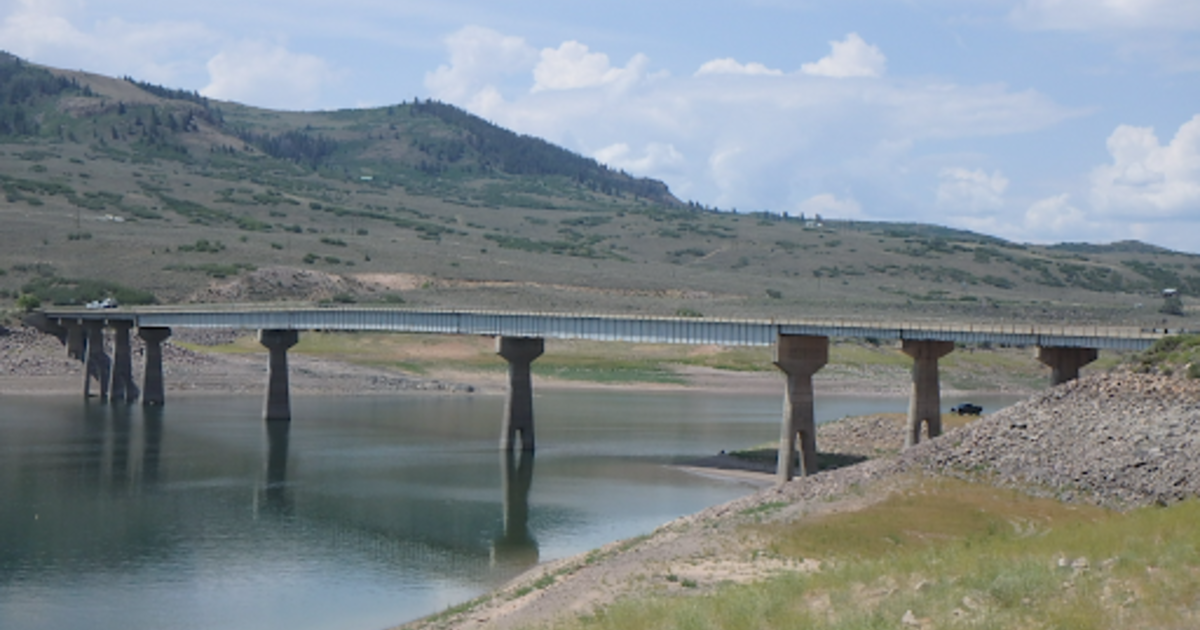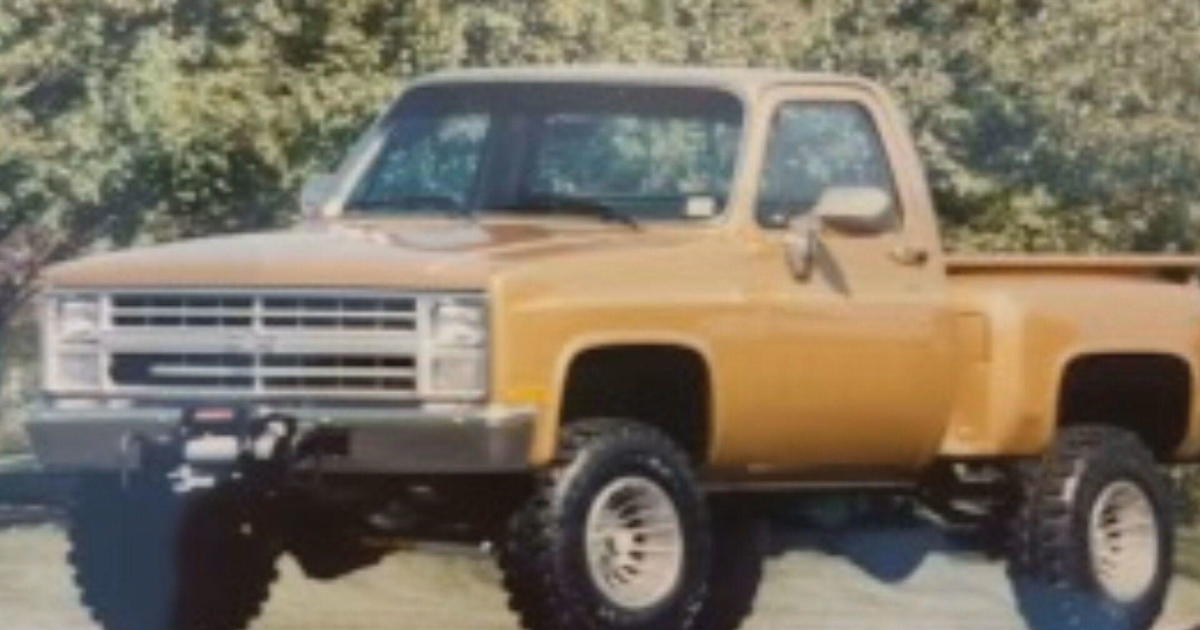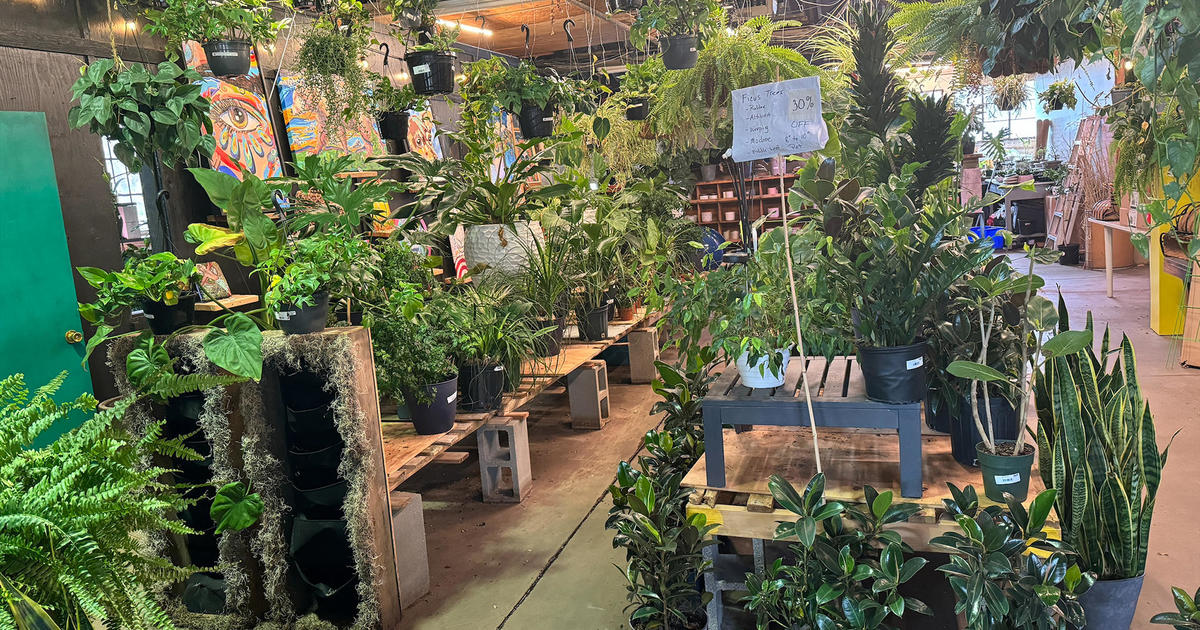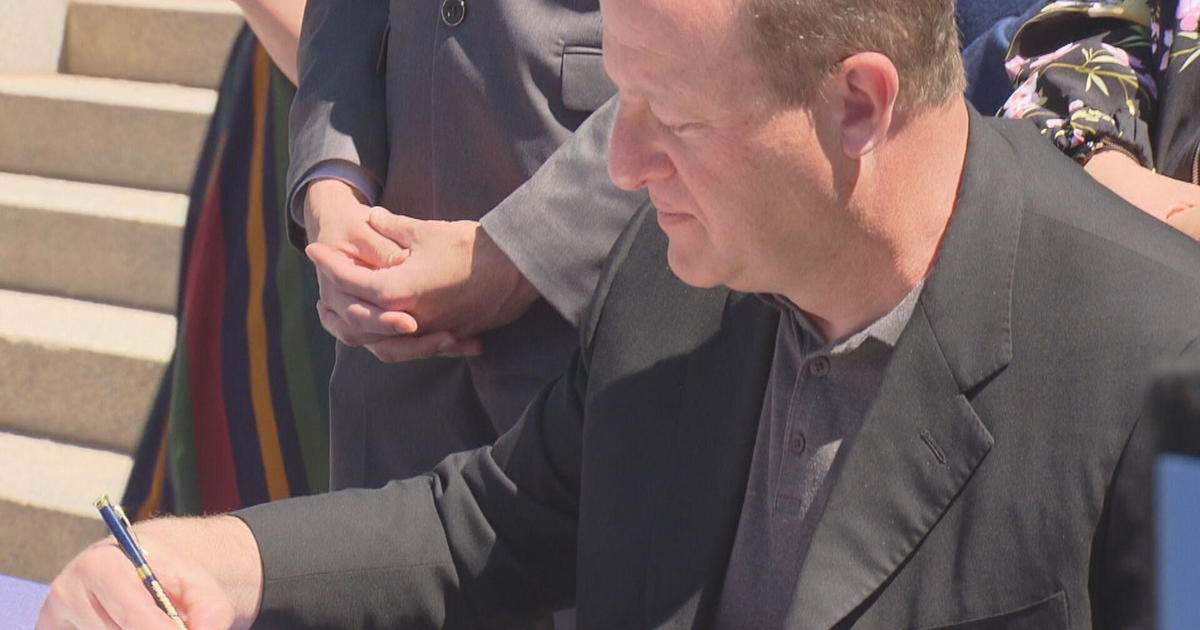Colorado Researchers Team Up On Gas Leak-Detecting Technology
WELD COUNTY, Colo. (CBS4) - Oil and gas is one of Colorado's largest industries. Over time, the gap between Colorado communities and those operations has gotten much smaller.
A group of scientists from Cooperative Institute for Research in Environmental Sciences, National Oceanic and Atmospheric Administration, University of Colorado Boulder and National Institute of Standards and Technology is aiming to make safety a priority.
Greg Rieker is a professor at CU Boulder and lead investigator on a groundbreaking device.
"What we are developing is a laser technology that can cover entire regions with a single device and do it autonomously without human intervention," Rieker said.
By emitting one beam with many colors, their Nobel Prize-winning laser can detect methane, which has a unique set of colors, from more than a mile away. They say when that pattern of colors is absorbed on the beam, they can tell there was methane and how much of it.
"Down to sort of parts per billion which is just maybe a few drops of water in a swimming pool," he said.
According to Rieker, current leak detection technology is behind the curve.
A majority of oil and gas companies often rely on aircraft to fly by wells or have someone physically moving from site to site, checking for leaks.
Not only is it costly, but inconsistent.
"It makes sense that you would want to monitor continuously or monitor a particular area for several weeks to make sure you've caught everything in that particular area," Reiker said.
In the last three years, a whole team of researchers, including Robbie Wright, went from almost room-sized technology to a 19-inch portable unit.
"This is our third iteration of this, and everyone has just gotten better and smaller," Wright said.
Changes that will open the door for industry leaders to put it to use and potentially limiting the risk of disaster.
"When it comes to keeping the natural gas in the pipeline, this is really important."
Rieker says pending approval from state agencies, the technology could be put to use within the year.
Karen Morfitt joined the CBS4 team as a reporter in 2013. She covers a variety of stories in and around the Denver metro area. Connect with her on Facebook, follow her on Twitter @karenmorfitt or email her tips.
